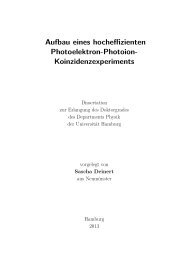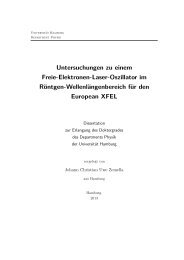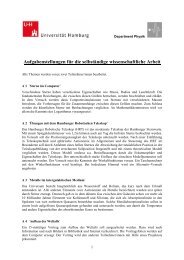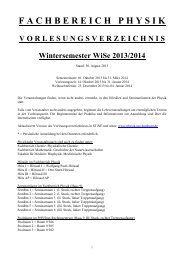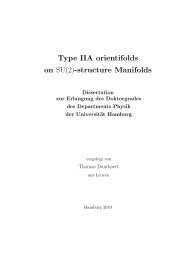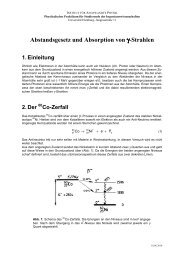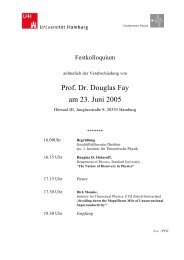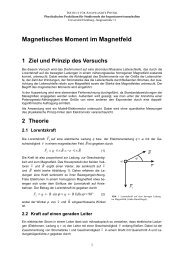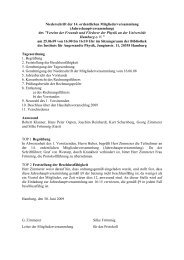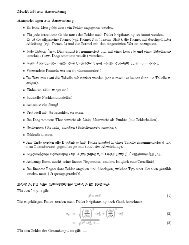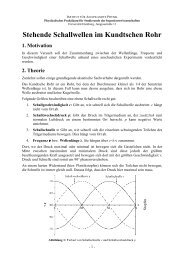Spin-orbit coupling and electron-phonon scattering - Fachbereich ...
Spin-orbit coupling and electron-phonon scattering - Fachbereich ...
Spin-orbit coupling and electron-phonon scattering - Fachbereich ...
Create successful ePaper yourself
Turn your PDF publications into a flip-book with our unique Google optimized e-Paper software.
110 Conclusion<br />
due to <strong>phonon</strong> van–Hove singularities, or completely suppressed by de<strong>coupling</strong><br />
the double dot from the <strong>phonon</strong> environment. The latter de<strong>coupling</strong> is caused by<br />
zeros in the <strong>electron</strong>-<strong>phonon</strong> interaction potentials for certain energies rather than<br />
gaps in the <strong>phonon</strong> density of states.<br />
Thus, by tuning the level splitting ∆ via gate voltages, one can either control<br />
<strong>electron</strong> dephasing in double dot qubit systems, or strongly increase emission into<br />
<strong>phonon</strong> modes with characteristic angular distribution. Both cases are desirable in<br />
a possible future quantum computation setup, where the strong <strong>phonon</strong> dissipation<br />
would allow an accelerated relaxation of the qubit during initialisation. On the<br />
other h<strong>and</strong>, the suppressed <strong>coupling</strong> to <strong>phonon</strong>s could provide a reasonably long<br />
phase coherence time for subsequent quantum gate operations.



